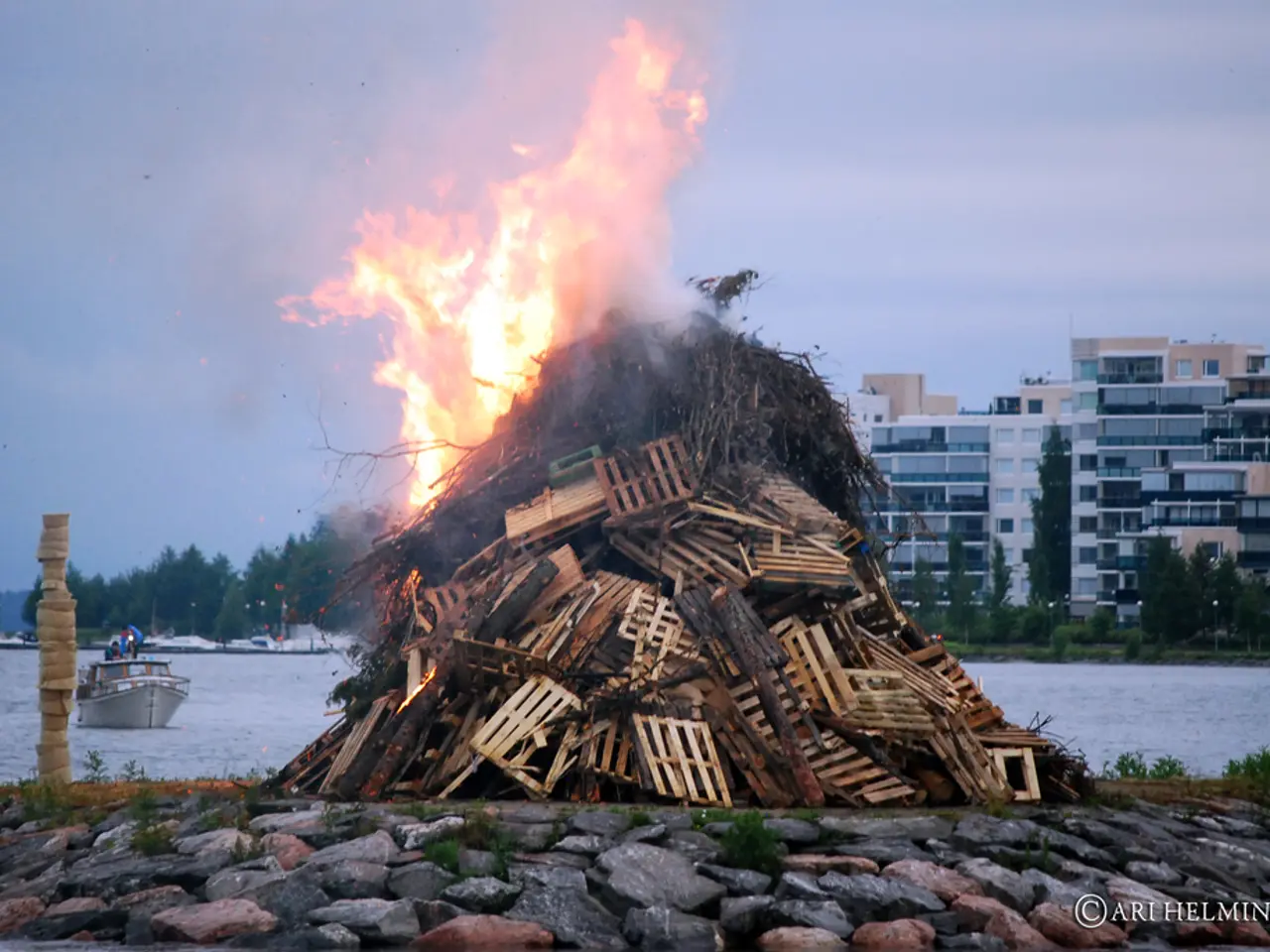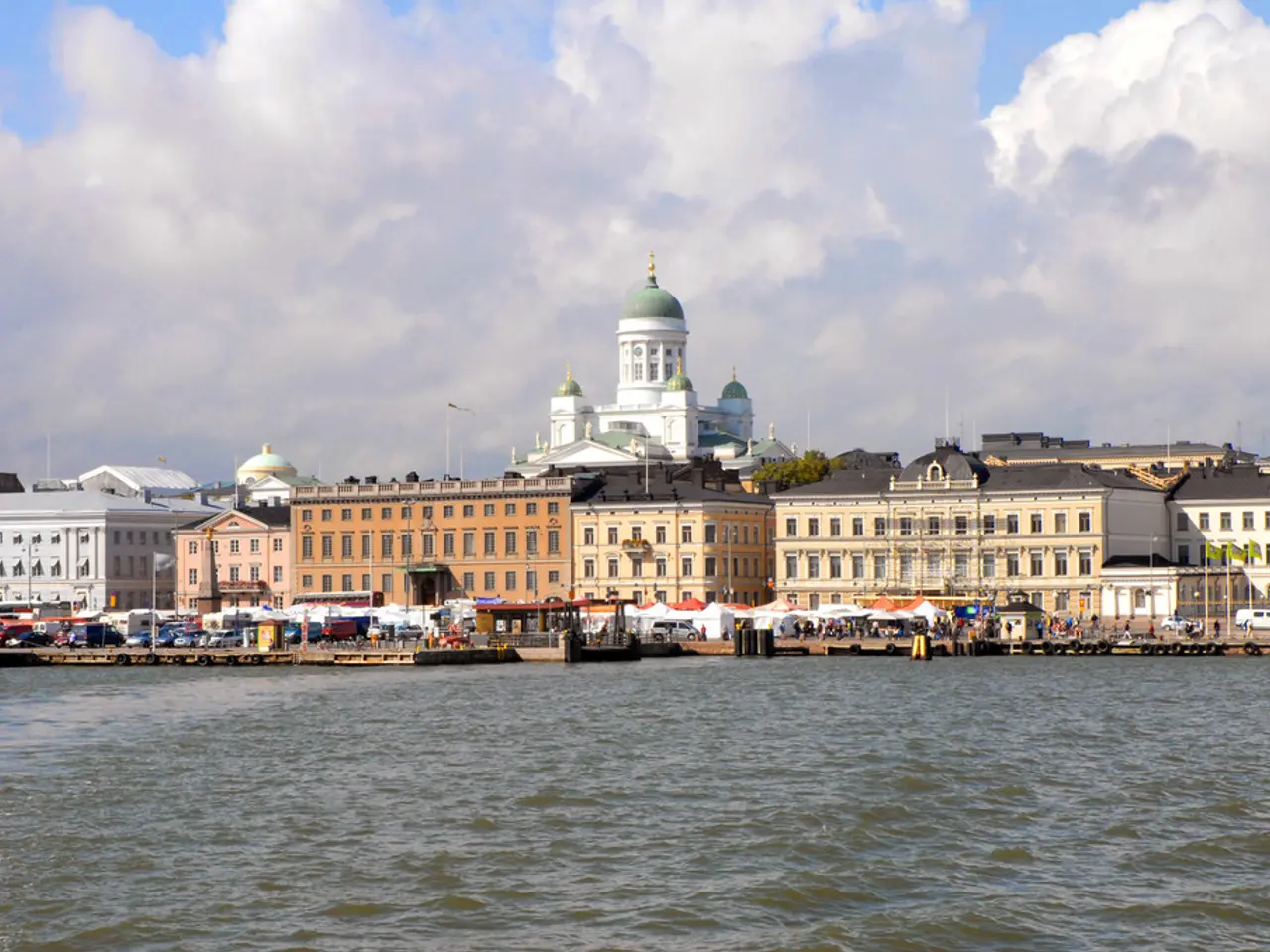Nationwide Effort to Combat Forest Fires in Areas West of Madrid
Wildfires are currently wreaking havoc across Spain and Portugal, particularly in the Avila and Caceres regions of central Spain and various areas in northern Portugal. The fires are fueled by soaring temperatures, strong winds, and very dry conditions associated with this summer's extreme heat across the Iberian Peninsula.
Causes
The extreme heat and drought conditions caused by climate change are significantly increasing fire risk and intensity this year. Strong winds contribute to the rapid spread and reignition of fires that were previously under control. Human activity is also a controllable factor that can affect fire outbreaks.
Current Status
Multiple wildfires are raging across central and northern Portugal and parts of Spain. In Portugal, areas such as Arouca, Penafiel, Ponte de Lima, Penamacor, and Ponte da Barca are especially affected. The Ponte da Barca fire alone has burned nearly 2,000 hectares and forced evacuations. The Avila and Caceres regions in Spain are among the affected areas, though the detailed current status specific to these provinces is less highlighted, the general pattern of intense fires and evacuations applies across central Spain too.
Firefighting Efforts
Both countries have deployed thousands of firefighters; Portugal has mobilized nearly 2,700 firefighters and 29 aerial units, while Spain has also sent substantial firefighting forces. Firefighting aircraft, including water carriers from Spain, support aerial fire suppression across borders. Authorities have evacuated residents from high-risk areas and set up emergency shelters, such as in local churches near fire zones. More than 26 aircraft and hundreds of firefighters work continuously to contain the blazes. Despite injuries among firefighters and some residents, no severe casualties have been reported recently.
Summary
The Avila and Caceres regions, located in central Spain near Portugal’s affected areas, are part of a wider zone enduring severe wildfires under critical heat and drought conditions coupled with strong winds. Emergency responses consist of extensive firefighting resources including thousands of ground personnel and dozens of aerial units from Spain and Portugal, coordinated evacuations, and constant monitoring to mitigate expanding fires. This is an ongoing and urgent situation exacerbated by climate change, with officials warning that conditions may worsen if temperatures remain high and dry winds persist.
- The ongoing wildfires in central and northern Portugal, as well as parts of Spain, such as the Avila and Caceres regions, are largely caused by climate change's impact on extreme heat and drought conditions, aggravating fire risk and intensity.
- In the realm of environmental science, the escalating climate-change induced extreme weather events like these wildfires highlight the urgent need for science-based strategies to mitigate their destructive impact on our planet's ecosystems.








